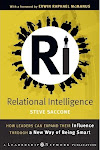When Christians read the Bible, why do we often lose sight of the importance of things like scenes and plot lines, while focusing solely on doctrines or belief systems? Shouldn't we read the Scripture with a curiosity to discover the layers and compelling dimensions of the protagonists and antagonists instead of only looking for the "absolute" or "objective" truth, as if that's all there is in the text? Isn't is necessary, and I would argue essential, for us to recognize the character development and peer deeply into the conflict and tension embedded in the biblical stories rather than just looking at every verse to simply find a belief we should have?
And why do we get so dogmatic about certain passages, claiming there is only one possible way of interpreting the passage, when it is so obvious that there are multi-dimensions and layers of interpretation, not to mention there ought to be freedom for open commentary and dialogue about our different perspectives about the passage so we can stretch our minds, hearts, and even souls? Why do we get out of sorts with looking at the biblical narrative like we look at any other kind of literature, narrative, or story? It's like we have access to a 3D feature film but we settle for the black and white version without sound. Perhaps we need to rethink our own frameworks of biblical interpretation, which may cause us to rethink how we live out our faith, which may lead us toward greater impact on the world around us as we gain and portray a quite different perspective on the Scriptures and "truth" as we know it...
Steve Saccone's Reflections on a New Way of Being Smart
Relational Intelligence
Create Movement. Remember to Love.

- Steve Saccone
- Los Angeles, CA, United States
- Steve is a leadership catalyst, writer, and creativity consultant. He works with Mosaic, a spiritual community in Los Angeles who strives to empower creativity of the human spirit, as well as cultivate relational and spiritual health. Steve also works as a Field Advisor for the Gallup Organization, serves as Director of Protege, a 2-year Global Leadership Program, and is an Adjunct Professor and guest lecturer for numerous universities.
Reading That's Worth Your Time
- A Whole New Mind: Why Right Brainers Will Rule the Future
- Drive: The Surprising Truth About What Motivates You
- How to Think Like Da Vinci: Seven Steps to Genius Everyday
- Lynchpin: Are You Indispensable?
- The Journey of Desire: Searching For The Life We've Only Dreamed Of
- Who's Your City? How the Creative Economy Is Making Where to Live the Most Important Decision
